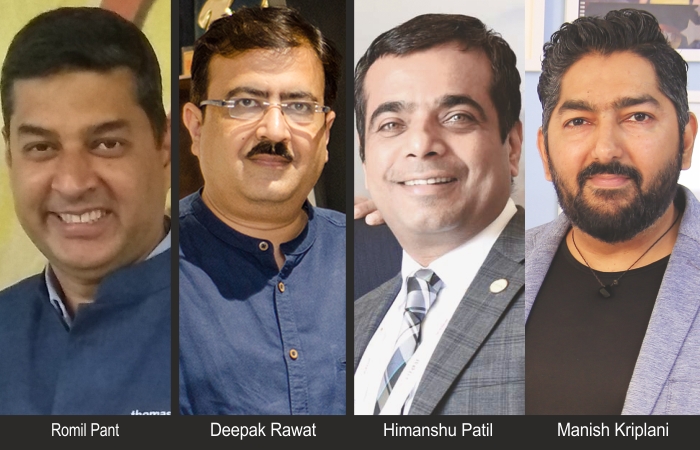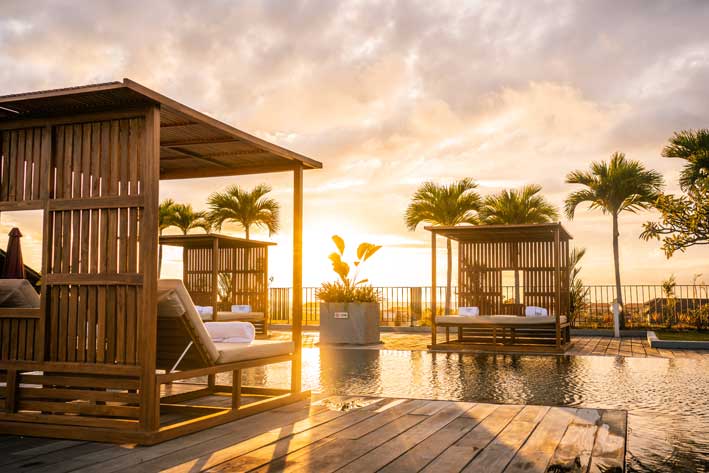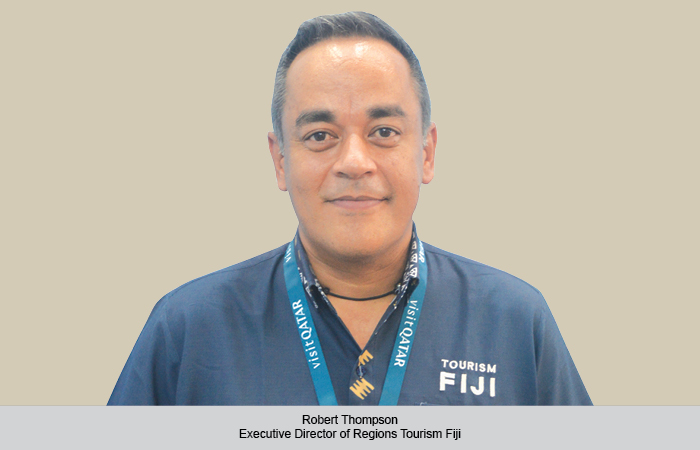Four experts discuss the changing behaviour among Indian travellers and the way in which suppliers must not only tweak their products but also how they sell them. The experts were recently brought together by Tourism Office of Spain – Mumbai to deep-dive into the minds of the Indian traveller and understand his new requirements.
Hazel Jain
The aim of this panel discussion with four experts from the Indian travel trade community was to discuss what the traveller is now seeking in the new normal. This was organised on the sidelines of a two-day virtual roadshow by Tourism Office of Spain – Mumbai that saw participation from 20 Spanish suppliers.
Understanding new needs
There is a clear demand for domestic travel and this, feels Romil Pant, Senior Vice President – Holidays, Thomas Cook (India), is a clear manifestation of the fact that travellers are ready to get out. “It’s only a matter of time and for borders to re-open. There is certainly a light at the end of the tunnel which is now visible by the way India and some international destinations have opened up. This also shows that safe travel is possible and is being managed very well at both ends. We are all driving momentum together now – the tourism boards, the travel agents, the DMCs. The early trends are pretty positive. We are putting all our might behind promoting not just our individual brands but collectively promoting travel as an industry so that we all gain from it and not just an individual operator,” he said.
In fact, even international travel is seeing movement. Deepak Rawat, Senior Vice President, International Markets, MakeMyTrip, believes that travel is slowly coming out of the tough phase. “We see more and more demand for travel coming up. Domestic self-drive holidays have started and there is interest for outbound for countries that are open. As countries open up their borders with caution, we will see people travel again. Of course, it will be very different now and DMCs, tourism boards, etc., will have to create something new for the customer that prioritises health safety and hygiene. As per our search trends, people have started searching for European destinations. We will surely see borders opening up and people travelling again in the coming quarter,” he says.
Sharing his recent travel experience, Himanshu Patil, Director, Kesari Tours and Vice President, Outbound Tour Operators Association of India (OTOAI), says that his Mumbai-Bengaluru flight was full. “When I visited Dubai last month, the international airport was slightly deserted but otherwise pretty buzzing. So people have started travelling – whether it is leisure or business. In fact, I saw a long queue for a Malé flight. So Dubai and Maldives are doing phenomenally well. Once MoCA announces scheduled flights, we will see huge numbers that may even surpass 2017-18 numbers by 2021-22,” he shares.
His company has just received a 20-people group inquiry for Maldives which is almost finalised. “Our work culture has seen a huge change in the last six months and while this work from home has increased productivity, corporates want their employees to take a break and relax. This is why corporate inquiries have started coming,” Patil adds.
Giving an update from his market Chennai – Manish Kriplani, Managing Director, Baywatch Travels, says, “I’m happy to share that Chennai airport handled more than 200 flights in one day in November – the highest since lockdown. Our corporate clients have also started calling us and my entire staff is back in office. I am expecting 2021 to be one of the best years in my travel career! I believe we have a fantastic year coming up. My team is now sharpening its skills and learning new things to be ready for that.”
Pent-up demand for the new
Pant shares an insight into what we can expect going forward. “Travel is no longer domestic or outbound – it is a ‘holiday’. People just want to travel. There is a clear shift in our product range, in our sales strategy in that we have to re-skill our people to sell everything and anything which our customers demand. The kind of traction we are seeing in domestic is probably better than what we saw pre-pandemic. State governments have become more supportive. There is a huge pent-up demand for the islands, which is Andamans, where we are still waiting for the ferries to restart. So Indians will now explore India much more than they have in the past,” he says.
Rawat meanwhile sheds light on luxury travel and adds that there was demand for charter flights and high-end villas from corporates and HNIs. “They were the first ones who wanted to travel. Moreover, there were no deals available on high-end hotels before the pandemic. But, that has changed now and we have never seen better deals and people buying them, too. HNIs are also booking high-end villas in Central London for holidays. When it comes to self-drive holidays, HNIs were choosing the best hotels and this is the segment that will move to a new destination as soon as it opens up. We have bookings for Thailand which is still not opened, yet purely because we are offering free cancellations!” he says.
Spain can help push numbers
What clients are also asking for now is an update on the safety aspect before travelling. Kriplani says, “Corporates now want to know every single thing about their destination, the SOPs, and even testimonials. My leisure clients are quite easy about that though. Moreover, clients would ask to stay in the city centre in the past. That is going to change now and inquiries are now for city outskirts or the hillside or a private bungalow. If Spain can work on these kinds of options – boutique accommodations outside of city – it will bode well for numbers. Self-drives will work, too, if Spain can offer some great self-drive options, help us with some good itineraries. People are also waiting to use their credit balance with airlines. It will be survival of the quickest – whichever country opens up first will get a big piece of the pie. Our clients also expect us to know all the on-ground protocols in place, if hotels have any certifications in place, etc. So I would request hotels and DMCs to share this information. This will help me promote Spain better.”
Expectations from Spain partners
Pant brings up the sensitive topic of pricing. “The cost for multiple COVID tests is an added cost for the traveller. So destinations need to figure how many tests are required from the traveller. Approximately four tests pre and post travel can bring the cost of travel up by `10,000 per person. So this is an important criterion for the tourism board to keep in mind when Spain opens up and how this can be minimised, keeping safety in mind. At the end of the day, people are first ensuring their safety and then moving to price,” he says.
He requests partners to assure of two things – pricing is as per Indian market but at the same time assuring that safety and hygiene measures are taken care of. “ Indians are hungry to travel and they will go wherever they see the best opportunity to do so. Certification from not just hotels but also transport and restaurants is also critical. The other aspect is assuring travellers of healthcare at the destination. Moreover, the decision period to travel has reduced significantly. Earlier people used to plan months or weeks in advance, now we are seeing bookings of two days prior to departure even to places like Maldives. So how quickly can the visa processing happen, how quickly will the health guidelines come in place, etc is vital,” Pant adds. He also requests the tourism boards to promote this information in not just English but also in vernacular languages as Tier-II and III in India consumes a lot of vernacular content.
Europe an all-time favourite
Europe has been a favourite with Indians and whoever opens their border first in 2021 will have an edge over other countries, says Patil. “Indians are travelling even today, but with Indian safety norms in place at our hotels, restaurants, etc. So when we talk about Europe, there will probably be stricter norms. The partners – whether it is hotels or transporters – will need to undertake the sanitisation process. People are going to travel to any European destination that will open first,” he adds.
Confidence building is vital
According to Rawat, the foremost thing travellers will consider before travelling to Spain is what is on offer there and their health safety. “Spain has amazing options like beautiful villas, high-end hotels, and great experiences such as self-drives, which can be picked up. If all these things are put together for high-end customers, it will pick up as soon as Spain opens its borders to India. This will be followed by FITs, who will probably choose destinations other than Madrid or Barcelona. And it is going to be a very detailed offering – what is the protocol when they arrive, how the vehicle will be sanitised, precautions at the accommodation and at the places they will visit, how to avoid crowds, and explore the beautiful country of Spain safely. Confidence building comes first and pricing is secondary,” he says. Rawat adds that we must convey to customers with the help of our partners about the current situation. “One of the most important points when we open Europe will be the quarantine rule. Can Spain adopt what Dubai has done – no quarantine if a passenger is COVID negative? That will be a game-changer. A 7 or 14-day rule will make it very difficult to crack the Indian market,” he underlines.
Challenges for Europe
Patil meanwhile also adds that all departments in the tourism landscape must speak the same language – right from tourism boards to airlines to immigration and consulates. “Everyone must know the same process for the SOPs. Also, access to the country’s healthcare system must be made easy. There is already a lot of domestic load in countries, but as a traveller you need assurance that medical aid will be provided if required,” he says.
Another key point that Kriplani brings up is the re-issue of lapsed and unused visas at no cost. “We hope the tourism board considers this. Also, if the trade can meet some healthcare professionals or hospitals virtually who could assure us of their support if anything goes wrong with our clients will help boost our confidence as well as of the clients,” he says.
 TravTalk India Online Magazine
TravTalk India Online Magazine





